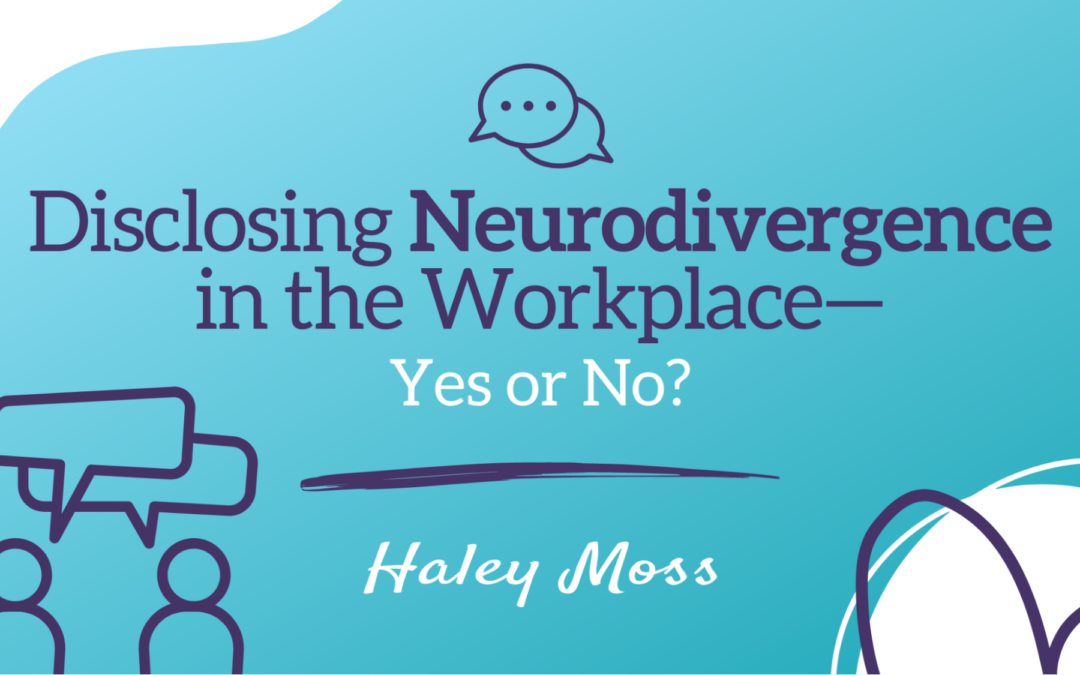Getting a job can already be a stressful situation, but add on top of that the decision to disclose your disabilities or not, and now you have a whole new level of stress. The choice to disclose is different for everyone, and as you sign on to a new job or are currently in one, you have complete control over whether or not disclosing is right for you. It can be a completely personal decision based on who you are, the job in question, and what you might need to work at your best.
Remember, You Are Protected Under the ADA
First things first, it is important to remember that you are not fighting this battle alone. You are protected under the Americans With Disabilities Act (ADA) regarding whether or not you want to disclose your neurodiversity to your employer. The ADA ensures that any discrimination, both indirect and direct, is not glossed over. It is illegal for your employer or fellow workers to discriminate or retaliate against you because of your disabilities, and if you choose to disclose personal information about yourself, remember that if anything negative happens, you don’t have to fight this battle alone.
The ADA also ensures that reasonable accommodations are available to those with disabilities, meaning that if you were to disclose and ask for certain things in order to work at your best if they do not cause undue hardship in the workplace, your employer and you must work together to implement those accommodations. This can be anything from using headphones to working away from an office’s loud noises and bright lights, even asking for a flexible work schedule.
Establish If Your Work Is Neurodiversity Friendly
One of the most significant reasons people are wary about disclosing their disabilities in the workplace is because they are unsure if their workplace will be welcoming and friendly to them and everything involved. To best learn if they are open and warm to everyone, it could be wise to research the company before sending in an application, reading reviews, or asking them outright during the interview process. Of course, if you are already in your position, you can ask about disability inclusion initiatives or an affinity group within the company or ask to read the employee handbook to see if they cover any accommodation options. Once you can establish if they are, or unfortunately not, you can decide from there.
Is There a Right Time?
Many might debate whether or not there is a right time to disclose your neurodiversity to your employer, and to that, I say it is up to you. If you are comfortable with it, I recommend that you disclose sooner rather than later, even as soon as the interview process, to ensure the information is out there. You can know from the start if your accommodations can be allowed. If you want more control over when you might disclose, try to obtain the full recruitment process to see where it might be best to bring up a conversation such as this.
If you are already in the position and find that accommodations would be helpful to you, it is best to bring them up whenever you feel comfortable stating your needs. It is better to voice what you need in the hopes of working to your best ability rather than staying quiet and squashing your potential.
How Should You Bring It Up?
The act of disclosing your neurodiversity to your employer can be challenging and even frightening to some, but the process looks different for everyone. I would recommend writing down your strengths in your position, how your neurodiversity is a positive, and how it helps you. Not only will this help give you a boost in confidence, but writing all of this down will make the actual conversation a whole lot easier. You could even have trial conversations with friends and family to ensure you get across all your talking points and requests. The straightforward approach can be great, sitting down with your employer and laying out your thoughts, but if that is too much, there are other options, such as email or bringing it up in meetings if you feel comfortable.
At the End of the Day, It Is Up to You
All of that to say, it is important to remember that this is about you, your needs, and your path to a productive work life. There is no right or wrong answer for anything discussed above, but depending on your needs and what will help you work at your best, it could be wise to disclose your neurodiversity to your employer and take steps to acquire the proper accommodations. You want to work to the best of your ability, and so does your employer, so don’t be afraid to bring up what you might need to get there. Don’t sell yourself short or undermine yourself regarding the need for accommodations. The law protects you, and you have the full right to ask. If you believe you should disclose and are comfortable, do it.
If you have further questions or wish to have me speak at your upcoming event, contact me!

